-
ABOUT US
-
ACADEMICS
Curriculum Program
Departments
- English
- High School Chinese
- Primary and Junior School Chinese.
- High School Mathematics
- Middle School Mathematics
- Primary School Mathematics
- Music and Fine Arts
- Physical Education
- Physics
- Chemistry
- History and Geography
- Physical Science and Optional courses Department
- Middle School Biology
- High School Biology
- Social Sciences
- Computer Science
- Courses in Primary School
Achievements and Matriculations
College Counseling
Science & Technology Innovation Contest
Subject Competition
-
ARTS
-
ATHLETICS
-
AT SHSID
SHSID ∣ TIMES
PTSA
Club Exhibition
- 龙吟社
- Live 2 Drama
- Choir
- Hip-pop Dance Club
- The Primary School Dance Troupe
- Symposiums Club
- Biology Workshop
- You Shan
- VEX Robotic
- Peking Opera Club
- Baseball Club
- Model United Nations
- The World Scholar’s Cup
- Future Problem Solving Club
- United States Academic Pentathlon
- OM Club
- AMC Club
- Music for Patients
- SHSID Gazette
- Smile Charity
- Cultural Moments
- SciAcademy
- Stem Doge Alliance
- Chinese Debate Club
- IAA
- Mock Trial Club
- Zhengming Club
- Furry Friends
- GT-Racing
- Village Radio
- IMMC Club
- Creative Design and Intelligent Fabrication
- Future City Research Project
- ECOCAP
- AdvocaSEA
- SPDC
- Medishine
- Floorball Club
- Animusic MTC
- Wings Up
- All Booked
- Cyano
Health and Wellness
Campus Safety
Cafeteria Service
-
ADMINISTRATION
-
ADMISSIONS
-
ALUMNI
Alumni Information
Honors Students
- Class of 2025
- Class of 2024
- Class of 2023
- Class of 2022
- Class of 2021
- Class of 2020
- Class of 2019
- Class of 2018
- Class of 2017
- Class of 2016
- Class of 2015
- Class of 2014
- Class of 2013
- Class of 2012
- Class of 2011
- Class of 2010
- Class of 2009
- Class of 2008
- Class of 2007
- Class of 2006
Who Studied at SHSID
SHS Foundation
-
DOCUMENTS
Hongkou Campus G1: Parent Night: Fostering Collaboration for a Successful Start
On September 25, the Grade 1 Parent Night, themed "Fostering Collaboration for a Successful Start," was successfully held on September 25th. Upholding the excellent tradition of home-school cooperation, this event focused on core content areas including the curriculum system, home-school collaboration, and student development. The aim was to help parents gain a comprehensive understanding of their children's learning and life at school, laying a solid foundation for their all-round growth.
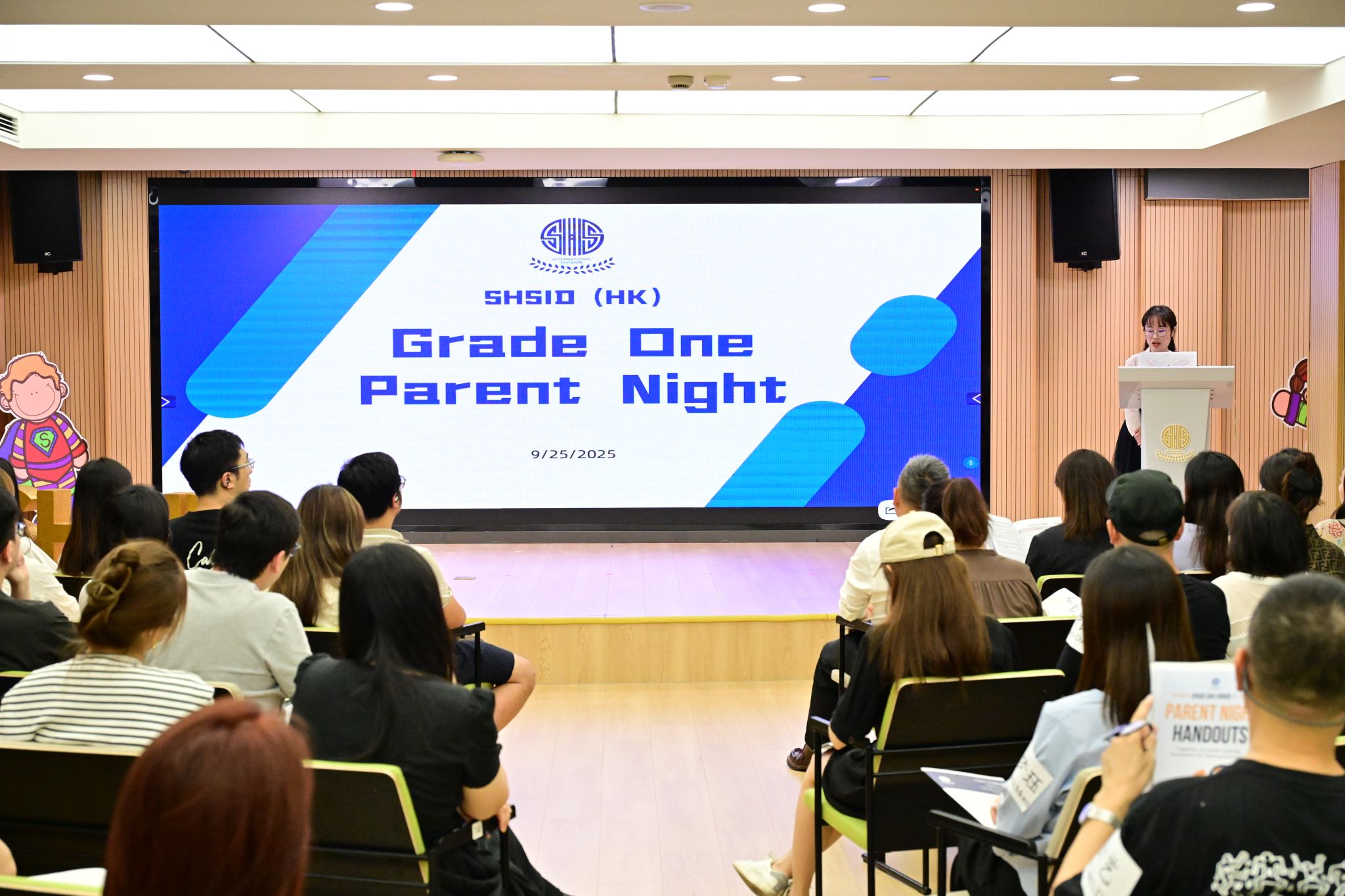
Warm Welcome: A Gentle Prelude with Knowledge in Hand
Before the meeting formally began, the campus was filled with a warm and orderly atmosphere. Parents arrived at the registration desk one after another, receiving detailed event booklets that included the complete agenda and practical advice for family education— providing valuable guidance for supporting children's development at home. Meanwhile, a video montage of campus life played on the large screen, accompanied by parents' quiet conversations and booklet browsing, creating an environment that felt as welcoming as home.
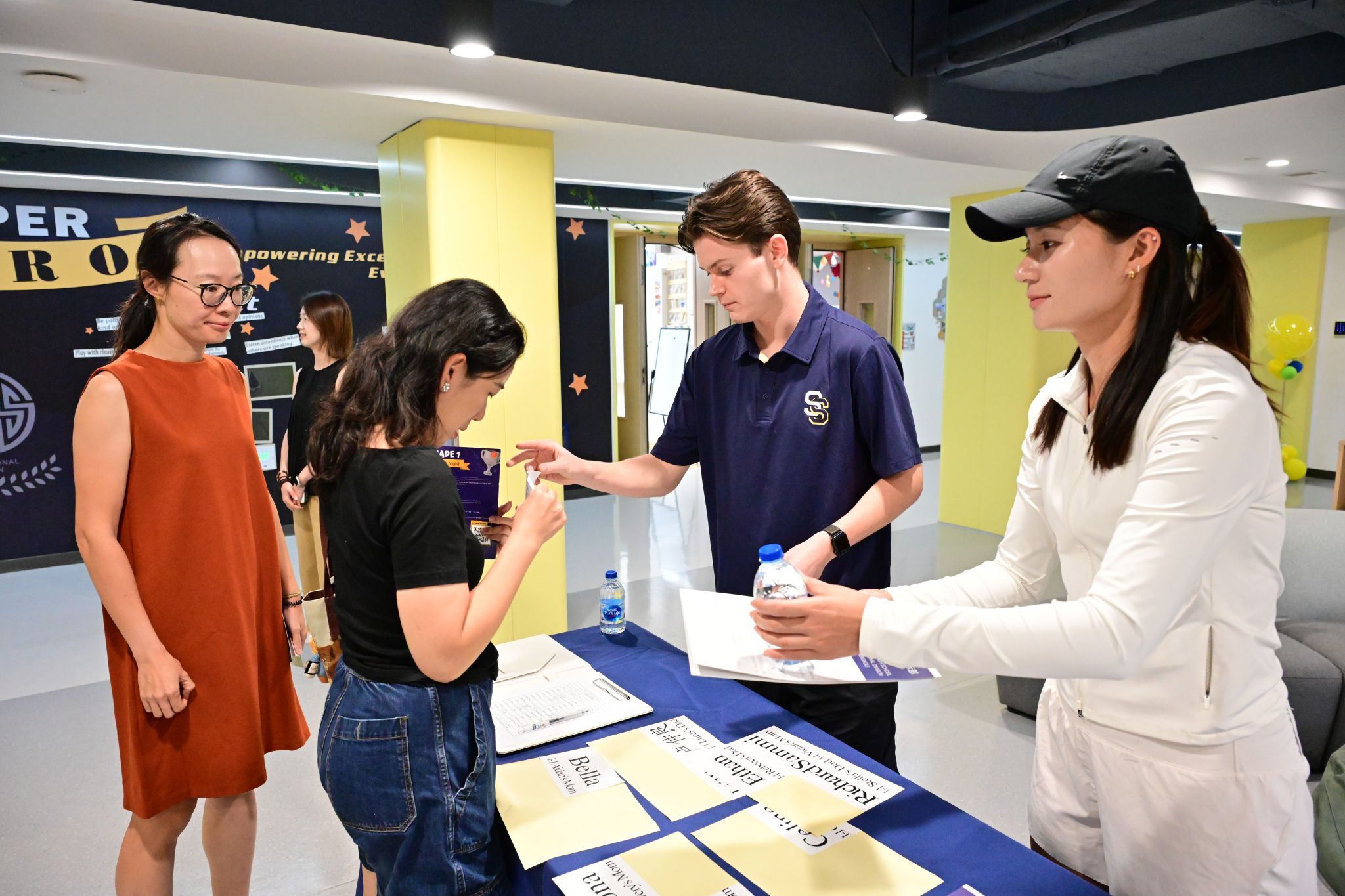
Chapter One: Curriculum Insights, Diverse Cultivation
1. Academic Goals and Growth Outlook
The parent night officially commenced in an enthusiastic atmosphere. Ms. Sheng Min, a Grade 1 teacher, spoke first, elaborating on the academic requirements and behavioral norms for students this semester. She introduced the school's rich array of practical activities and cultural courses, specifically emphasizing the importance of the "Personal Growth Curriculum" and the school's firm commitment to students' all-round development. Ms. Sheng encouraged parents to actively cooperate and collectively lay a solid foundation for their children's future growth.
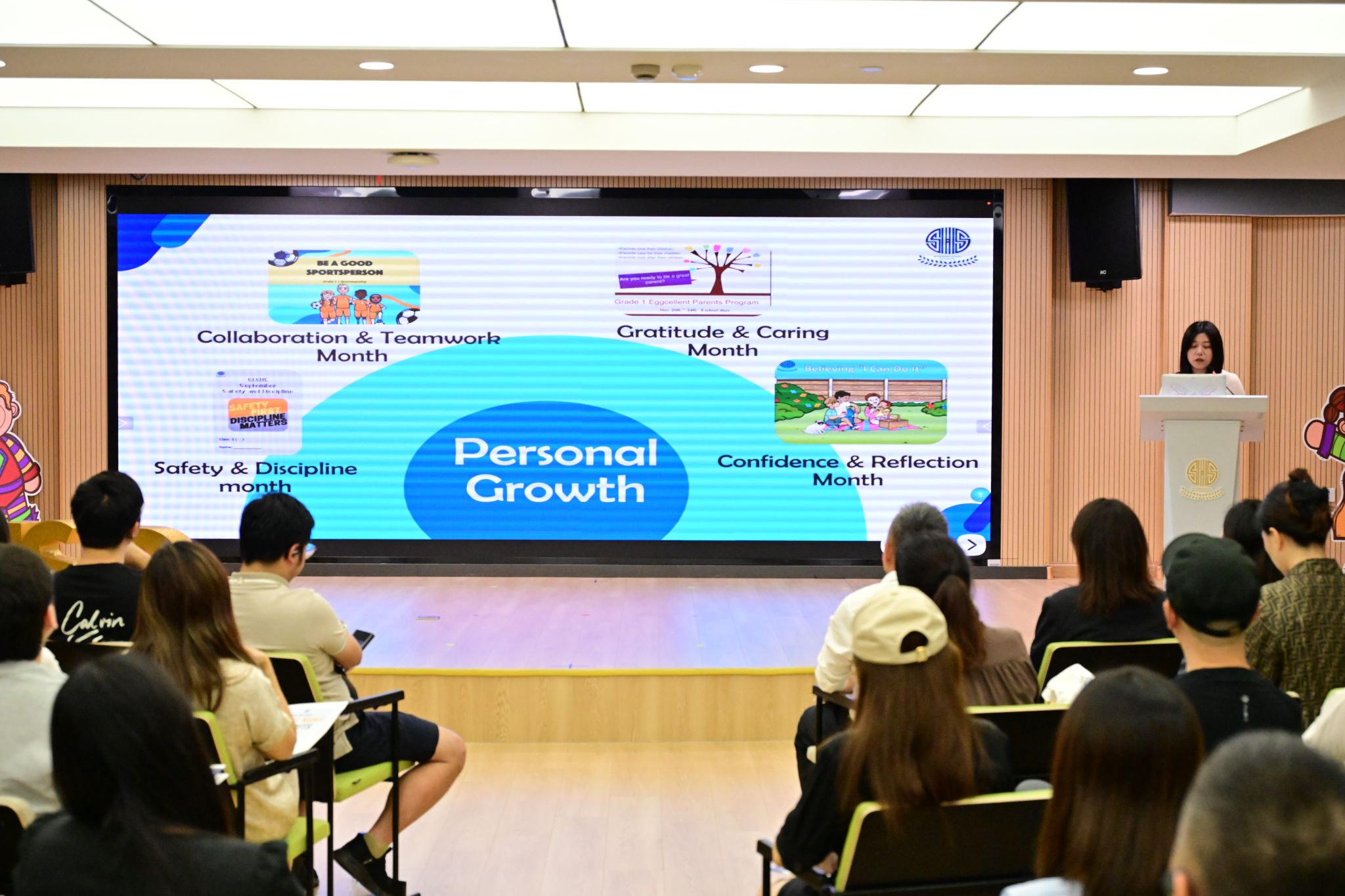
2. Subject Teaching and Feature Showcase
Following this, subject teachers took to the stage one by one. Combining their respective subject characteristics, they elaborated on teaching objectives, curriculum content, and featured activities, while also offering specific suggestions on learning issues of common concern to parents. The teachers unanimously emphasized the crucial role of family support in children's learning process, calling on parents to pay attention to their children's learning status and emotional development, serving as strong pillars in their children's growth journeys.

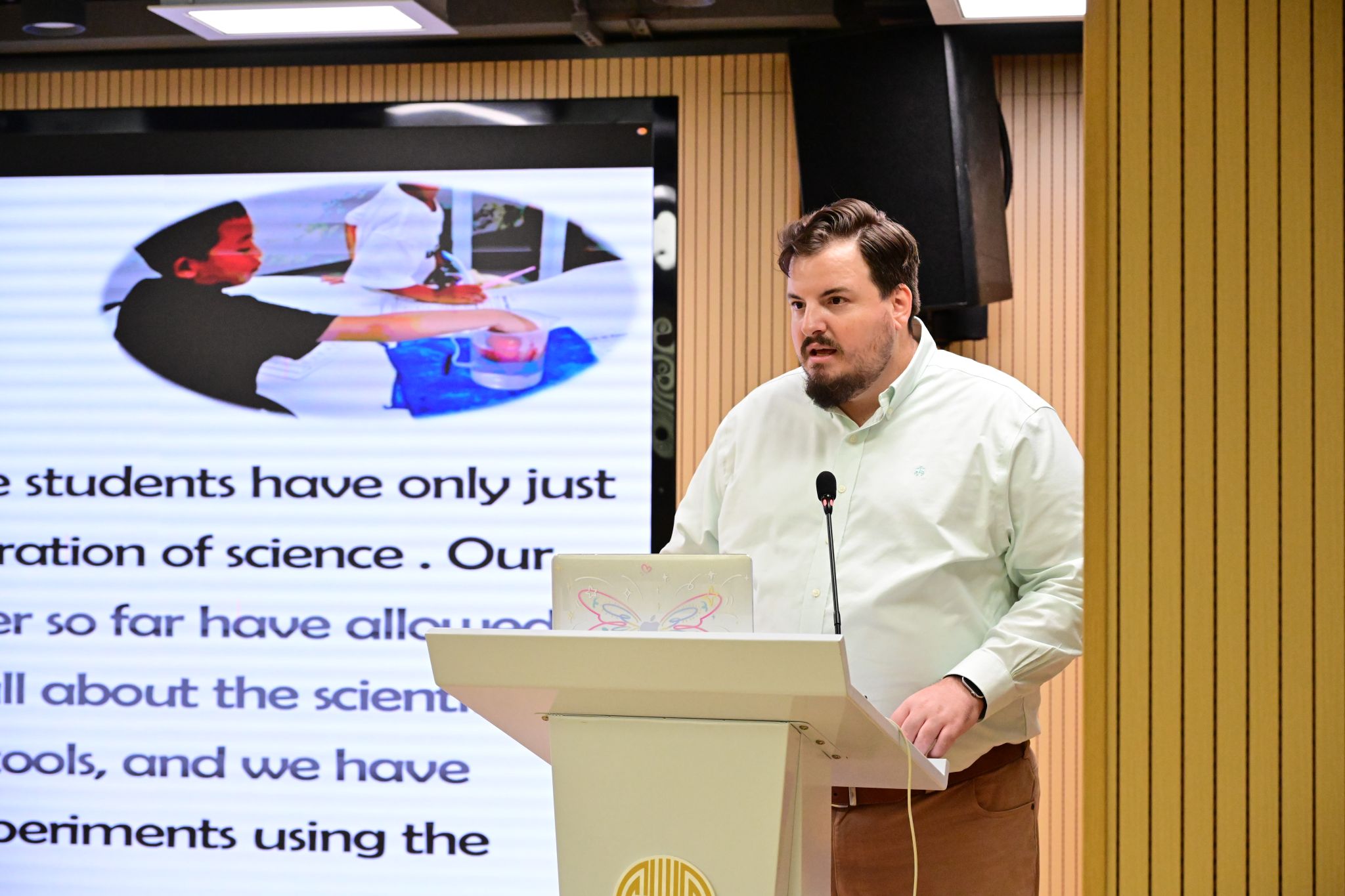
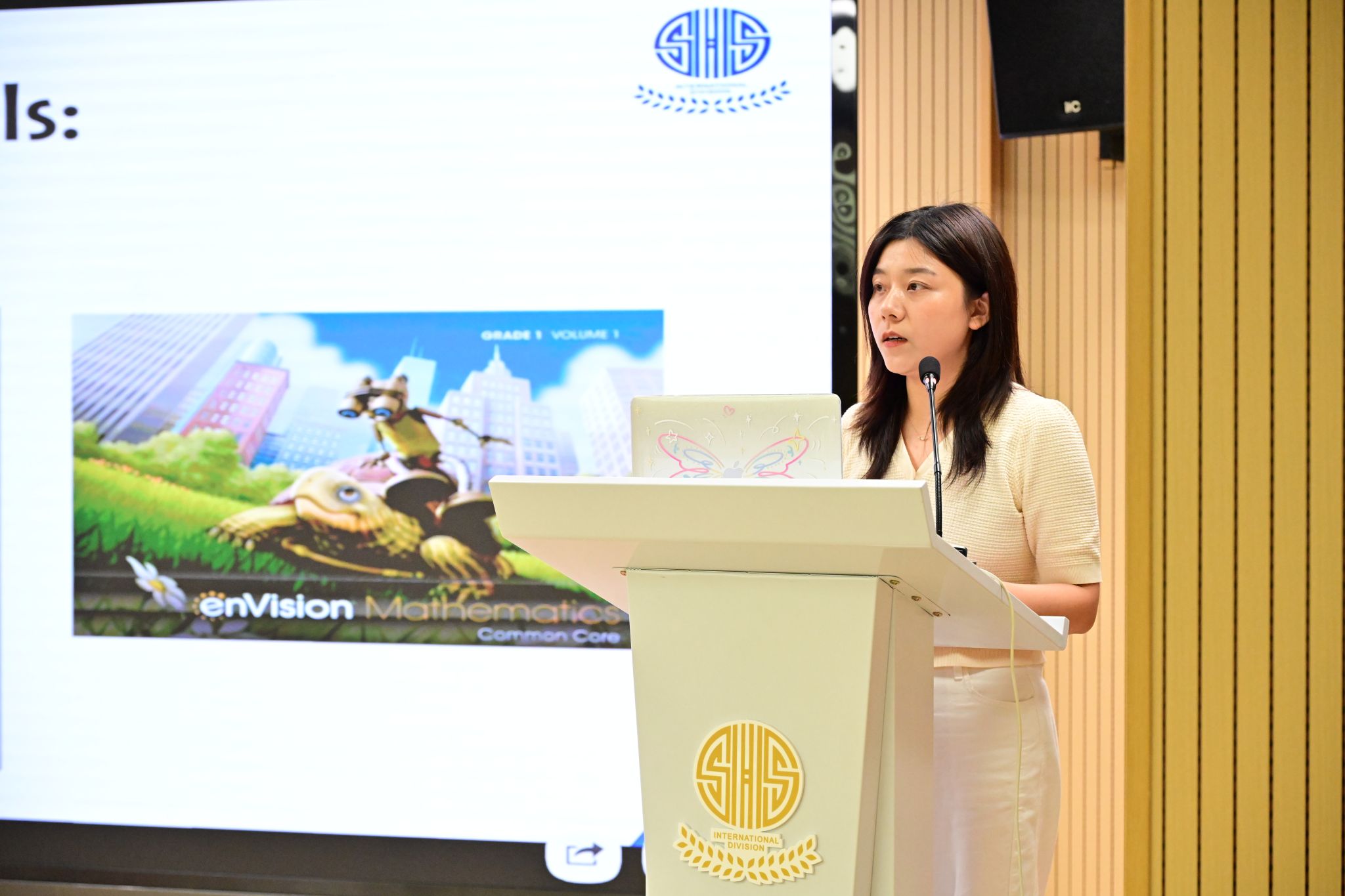
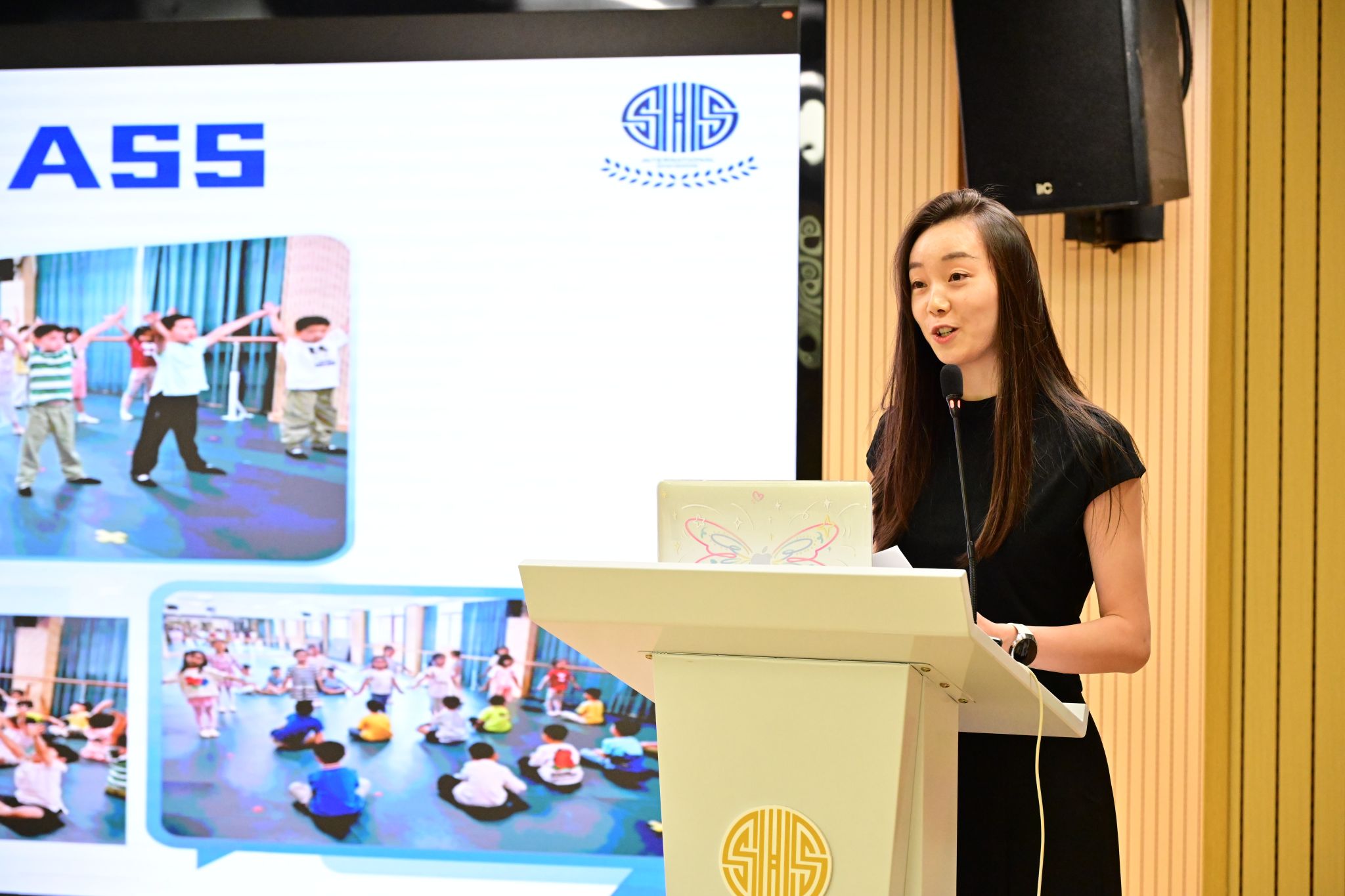
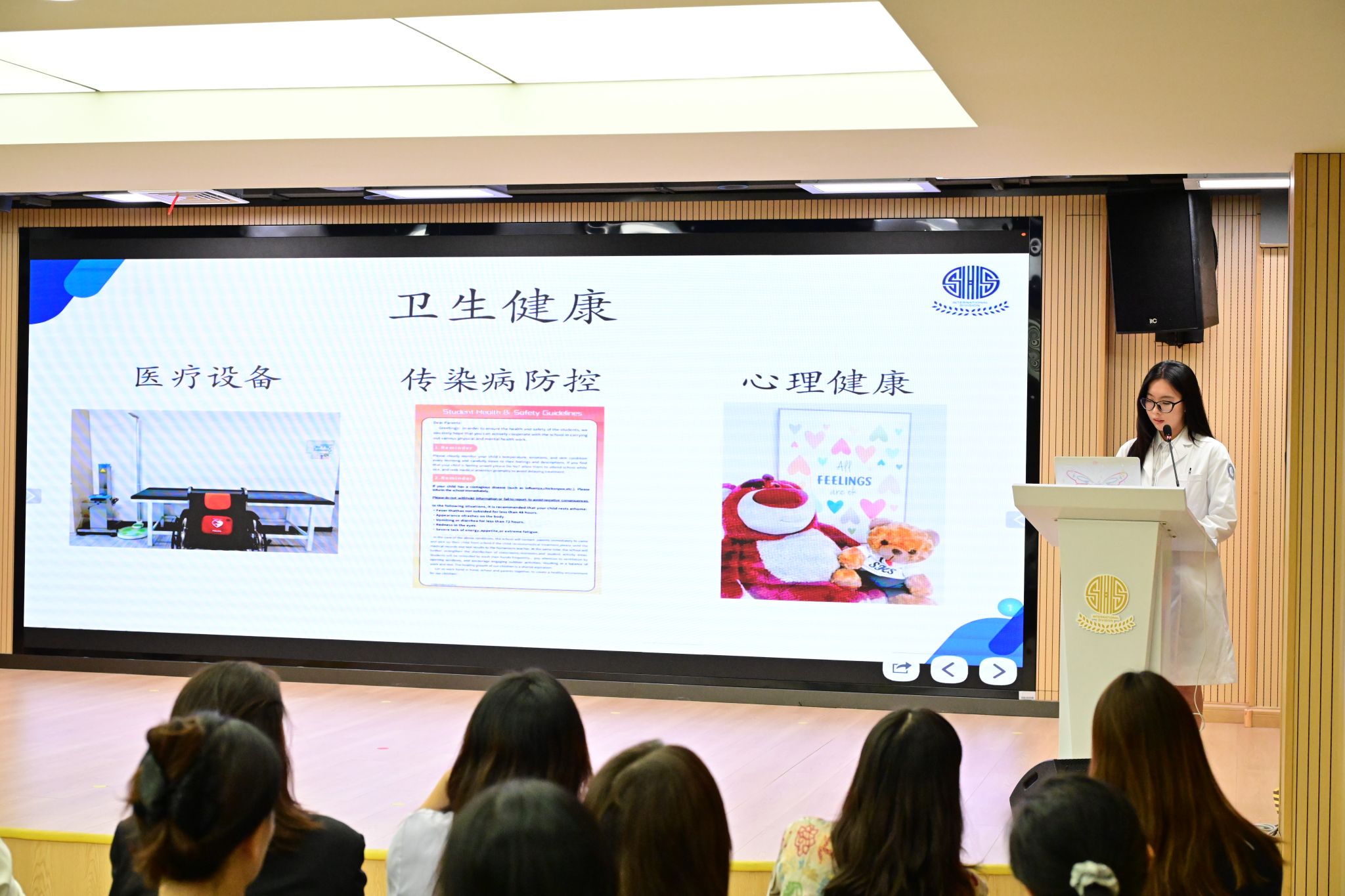
3. Home-School Cooperation and Ideological Alignment
Ms. Zhu Dan, the Head of the Hongkou Campus, delved into the profound significance of home-school collaboration, using the concept of "Holistic Education" as a starting point. She highlighted that the school is committed to nurturing students into "independent learners" and "responsible global citizens," and detailed the core competencies required to meet the challenges of the AI era, including learning ability, critical thinking, creativity, communication and collaboration, and moral and civic responsibility. Ms. Zhu emphasized that these competencies are the bedrock for children's future development. To achieve this goal, the school's curriculum design integrates core academics, interest development, and innovative experiences, employing student-centered teaching methods that encourage gamified and experiential learning, while also incorporating character development. She further explained the school's multi-dimensional dynamic evaluation system and comprehensive learning support system, underscoring the key role of homeroom teachers and the learning feedback mechanism. Finally, Ms. Zhu strongly urged parents to align with the school from three key perspectives: "Unified Philosophy, Prioritizing Habits, and Efficient Communication," to jointly lay a solid foundation for their children's growth, enabling them not only to adapt to the future but also to create it.
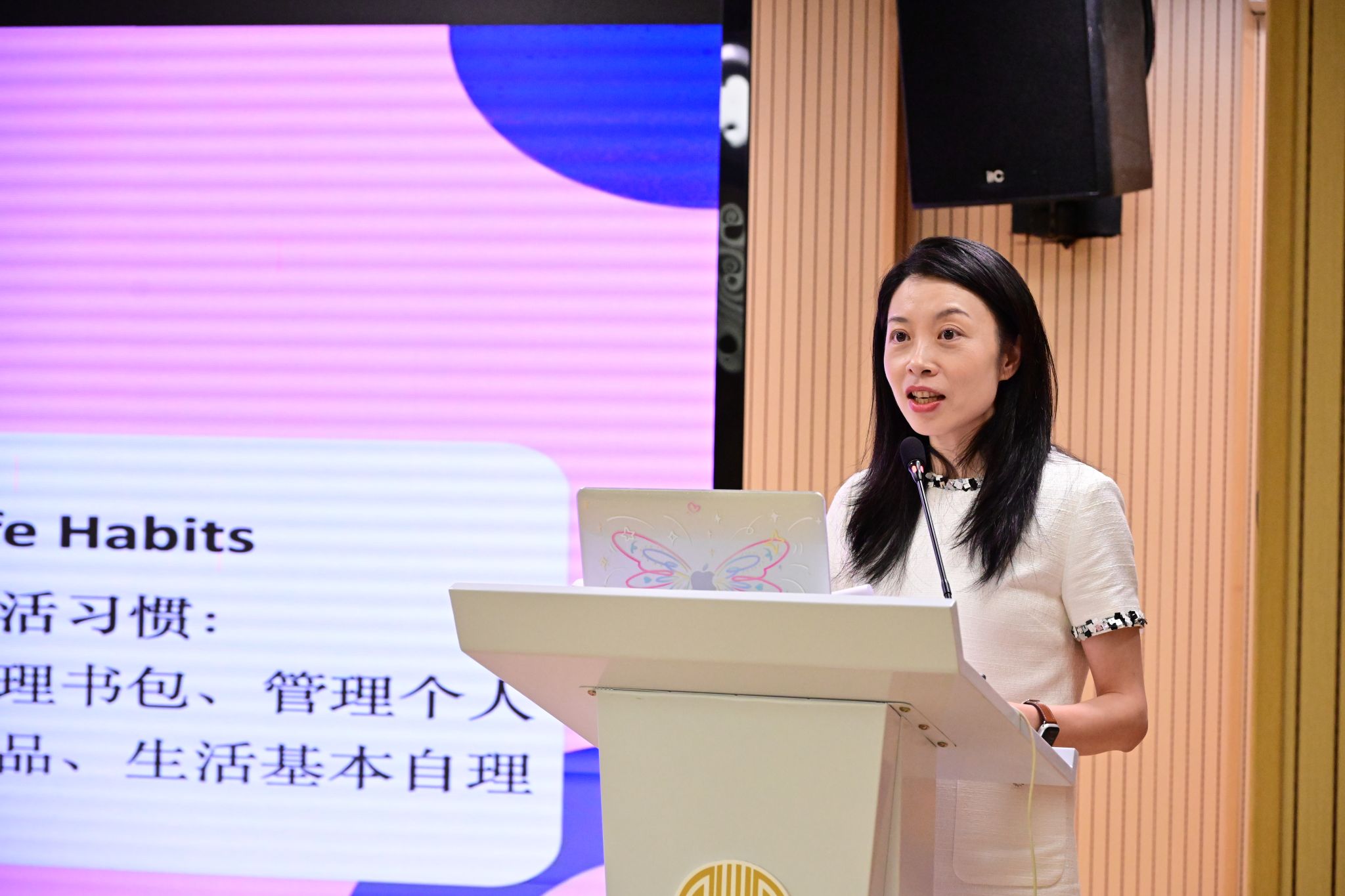
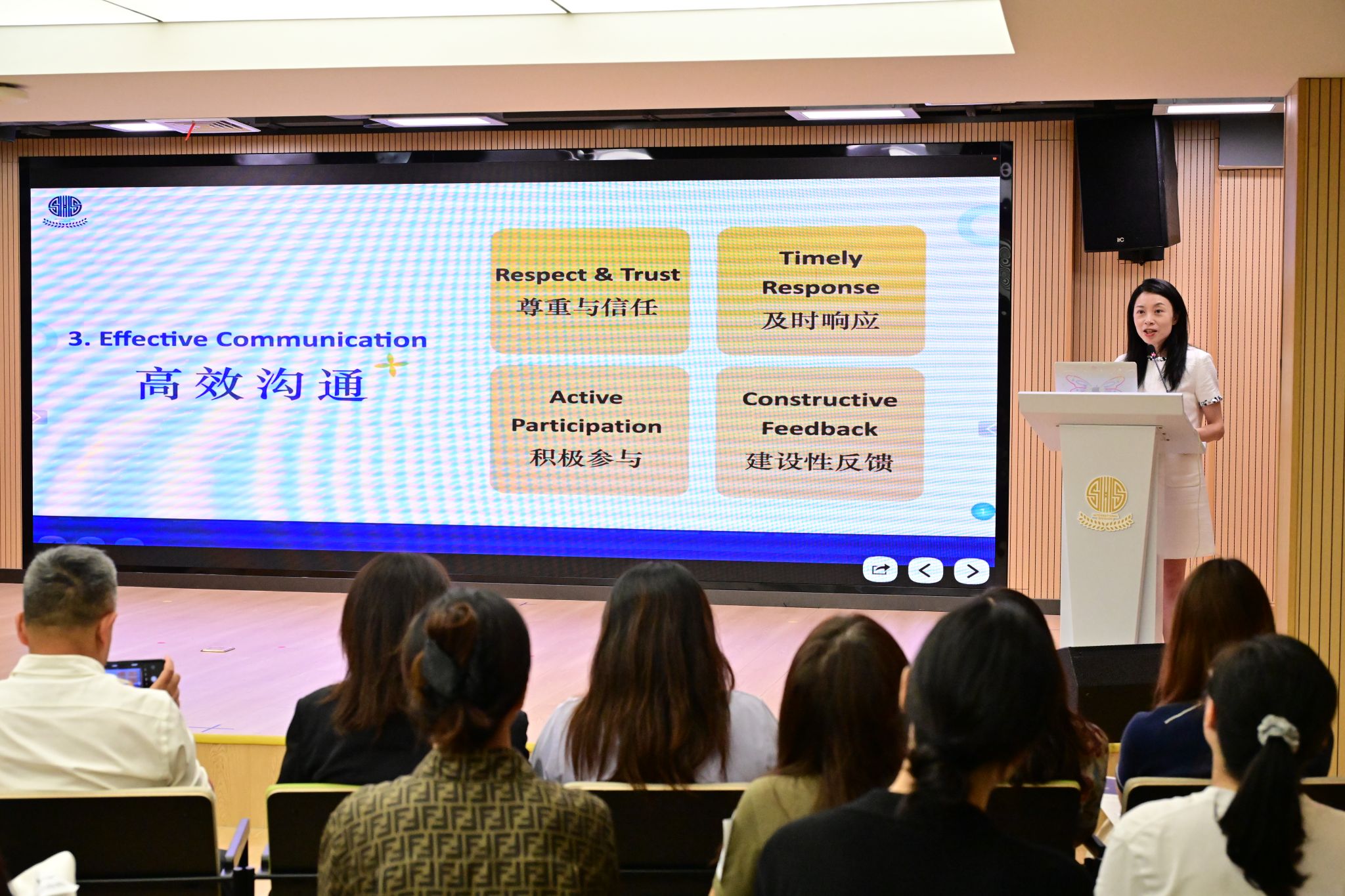
Chapter Two: Classroom Interaction, Precision in Strategy
1. Classroom Norms and Daily Management
In the second segment, parents moved to their children's respective classrooms for in-depth communication with their homeroom teachers. The homeroom teachers first introduced the basic situation of the class and the daily curriculum arrangements. They then detailed the class reward mechanisms and award settings, and set clear requirements for students in developing good learning habits, such as completing homework independently, consistently engaging in English communication at school, submitting homework on time, and preparing all necessary learning materials for each day.
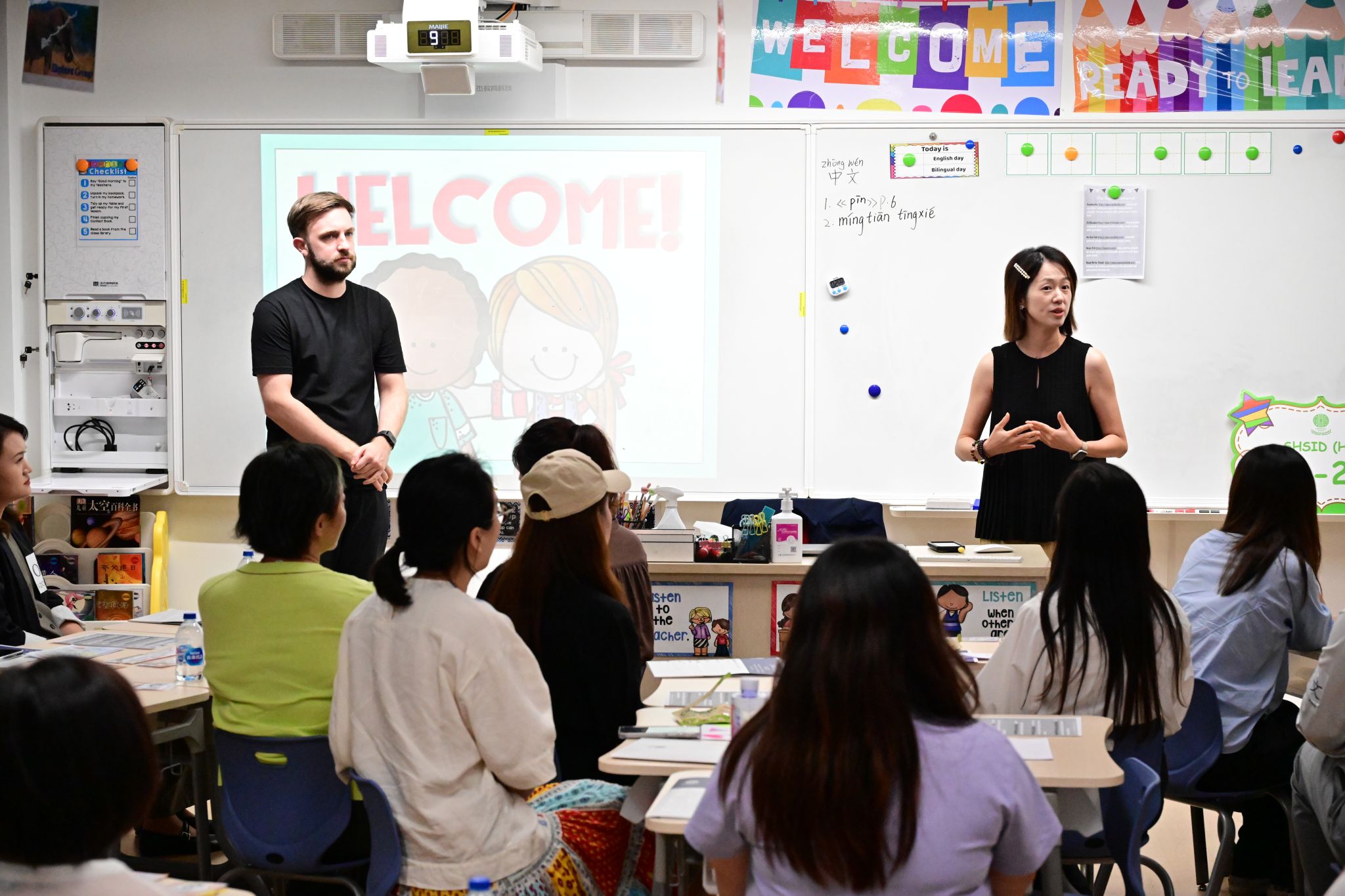
2. Habit Cultivation and Growth Support
Homeroom teachers also discussed with parents how to help children adapt to the rhythm of primary school life and cultivate good learning habits, sharing numerous practical family education methods. The interactive session was active, with teachers patiently answering questions and parents responding enthusiastically.
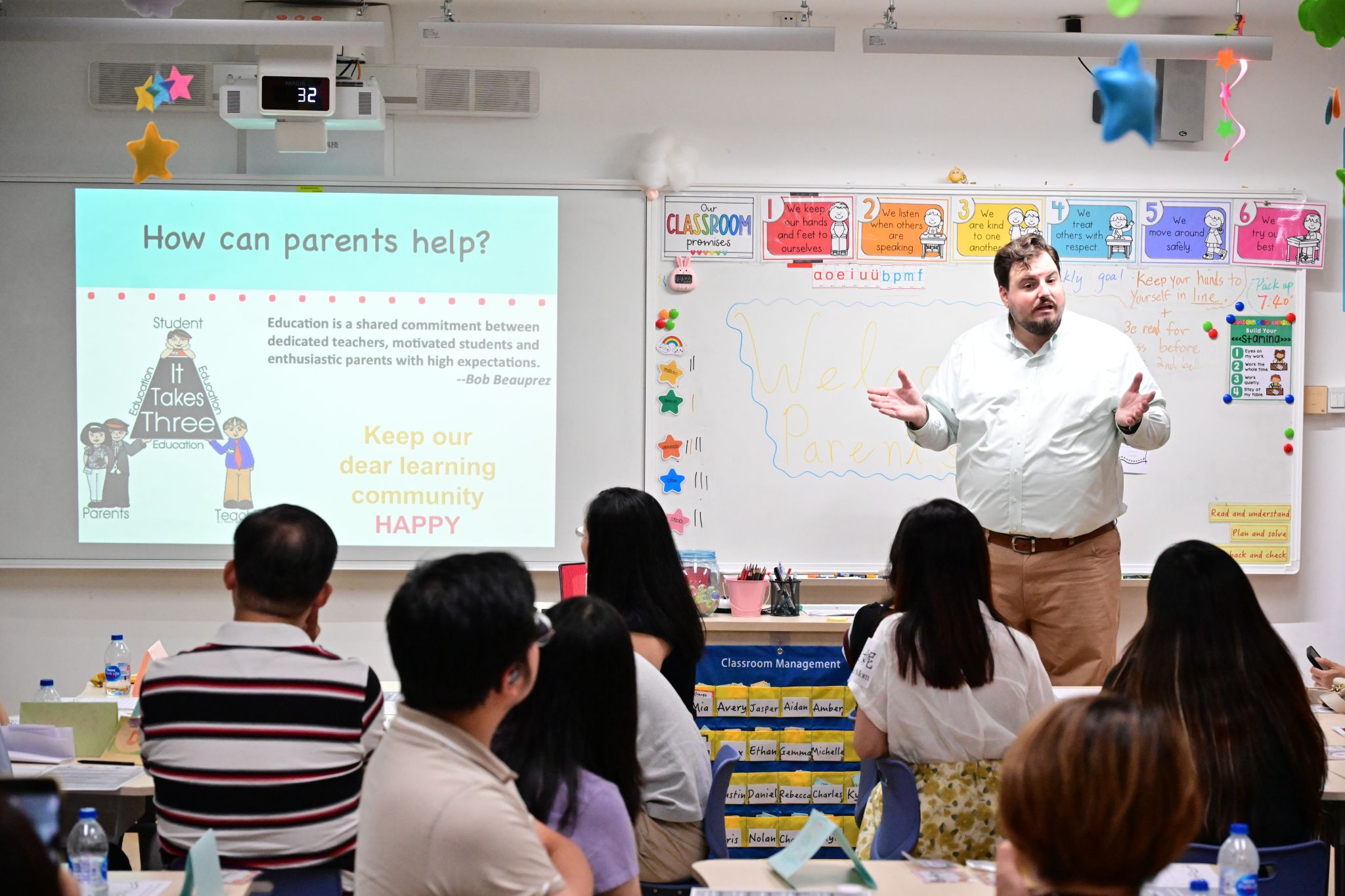
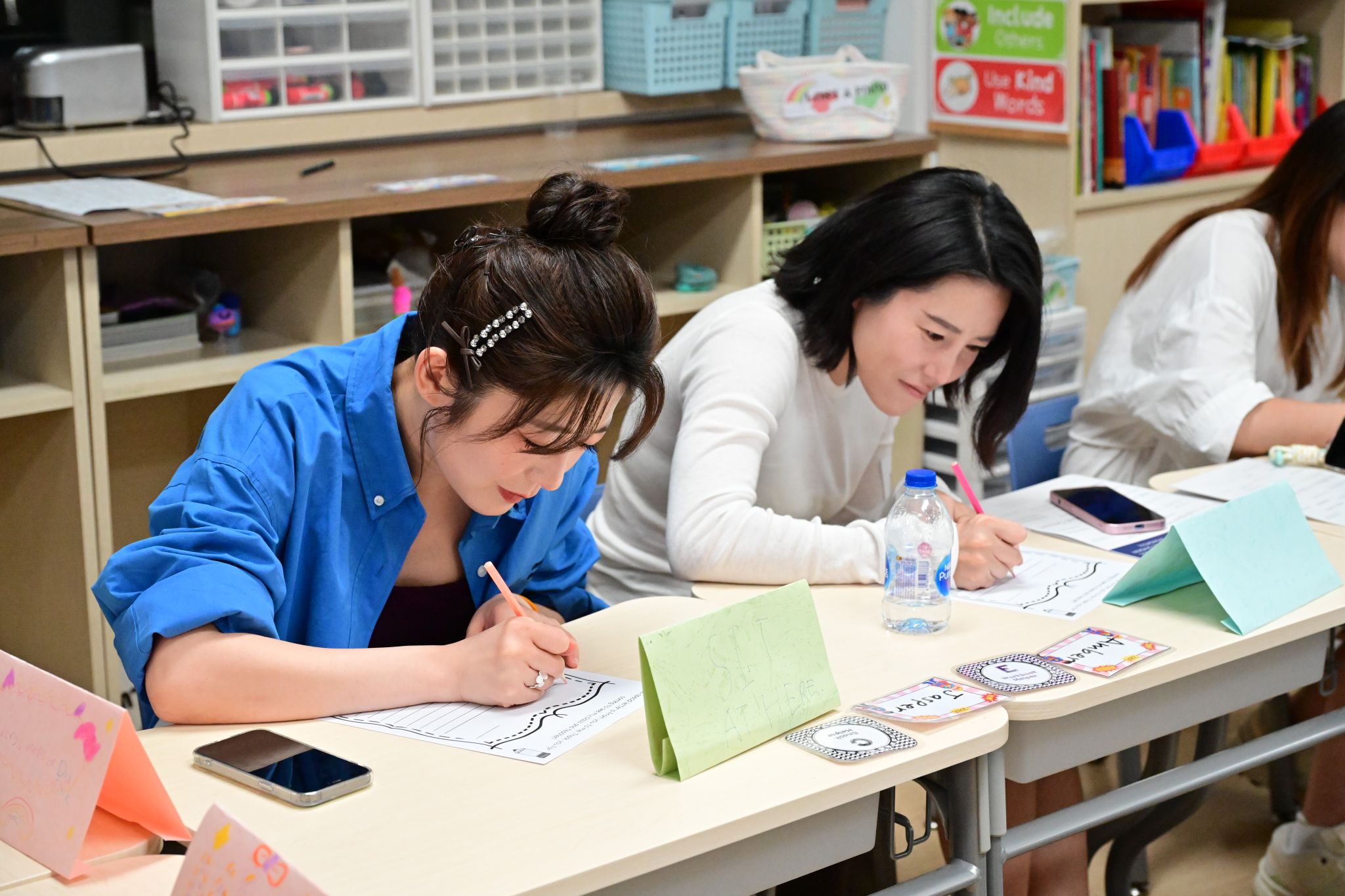
Conclusion: United Efforts, Anticipating the Future
The parent night concluded in a harmonious and productive atmosphere. Parents generally expressed that through the meeting, they gained a clearer understanding of their children's learning and life at school, and received beneficial guidance on family education. They expressed high recognition and gratitude for the school's meticulous work and looked forward to continued strengthening of home-school communication, working together to help children thrive and create a better future.
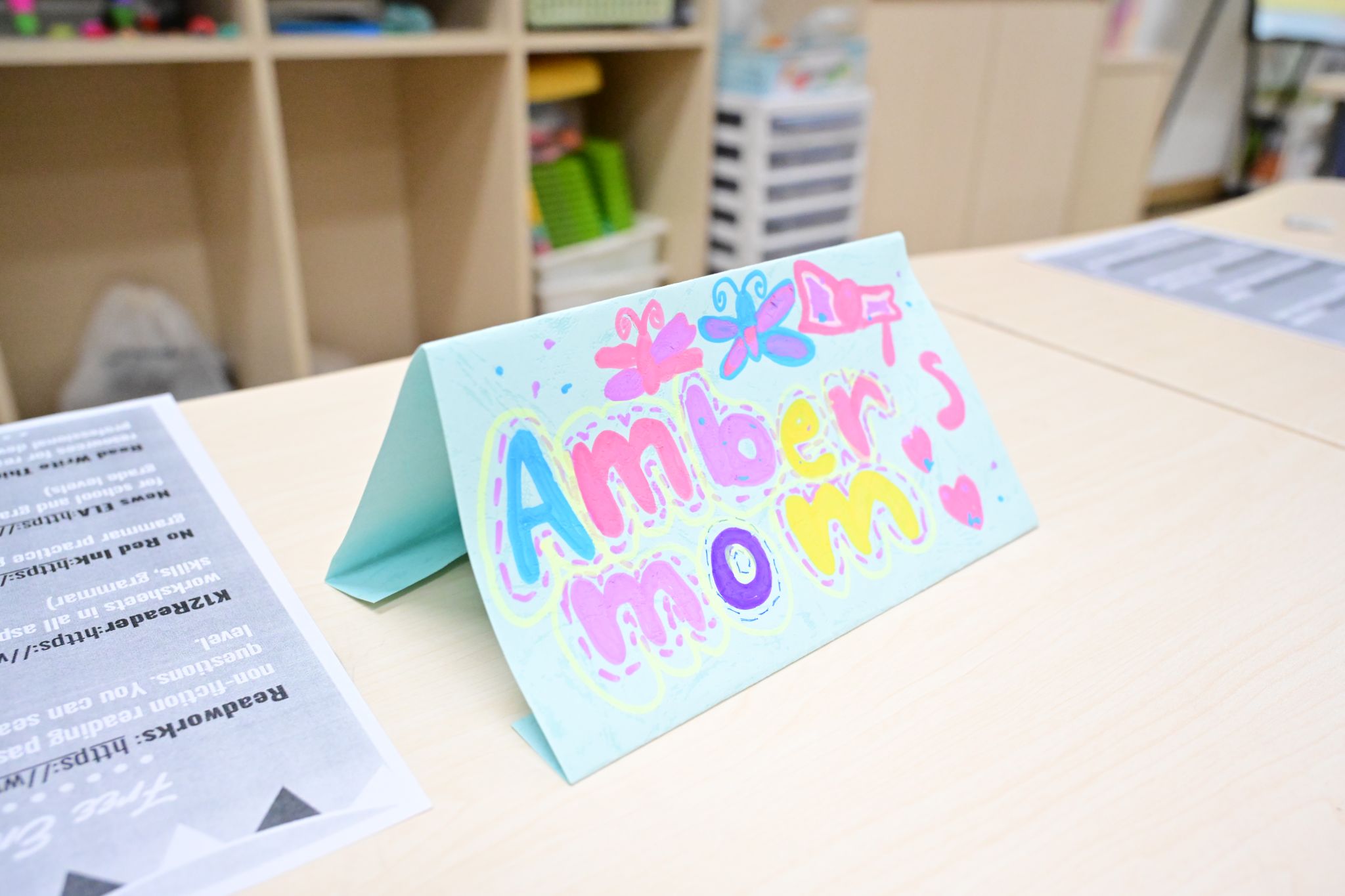
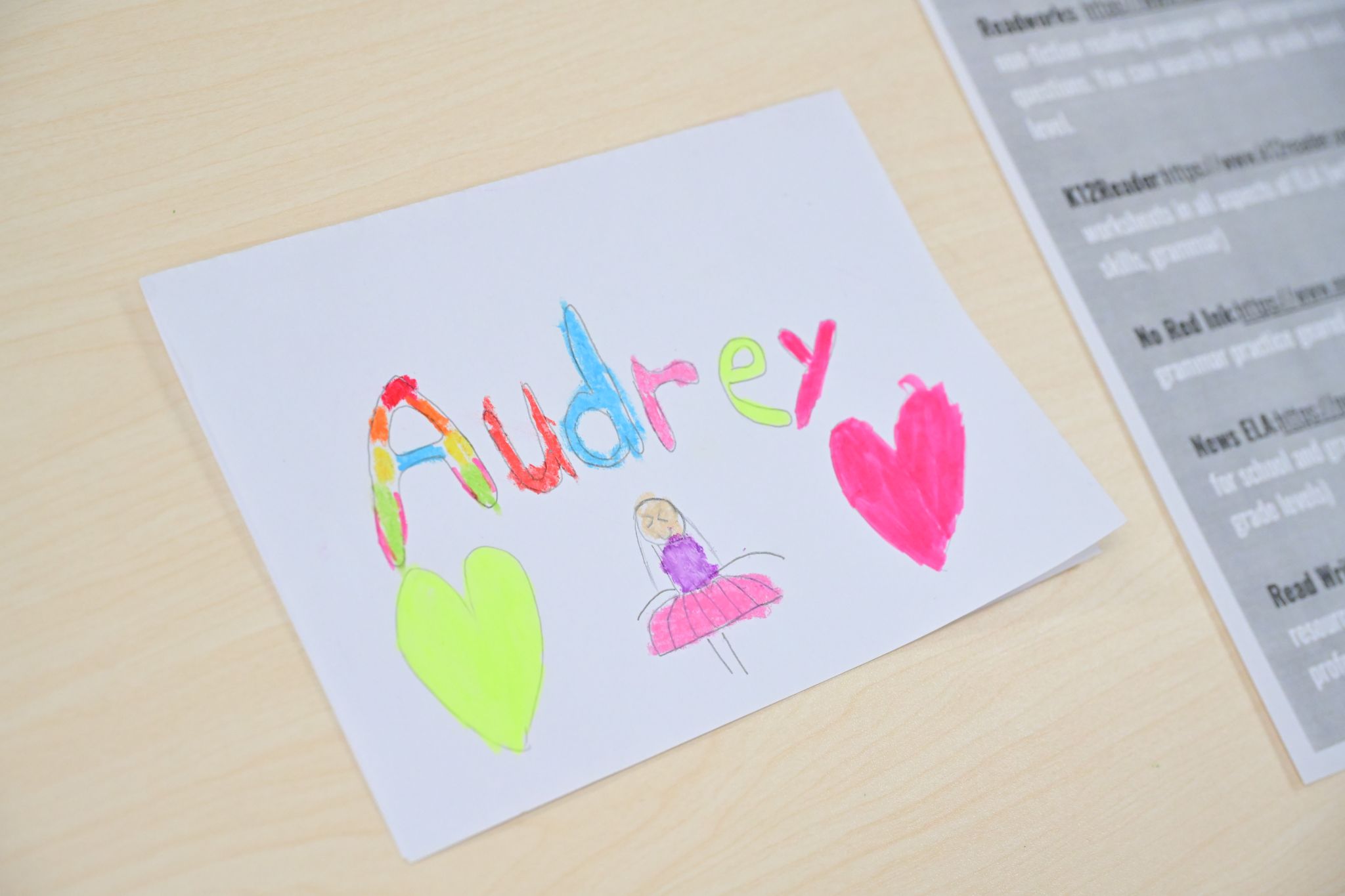
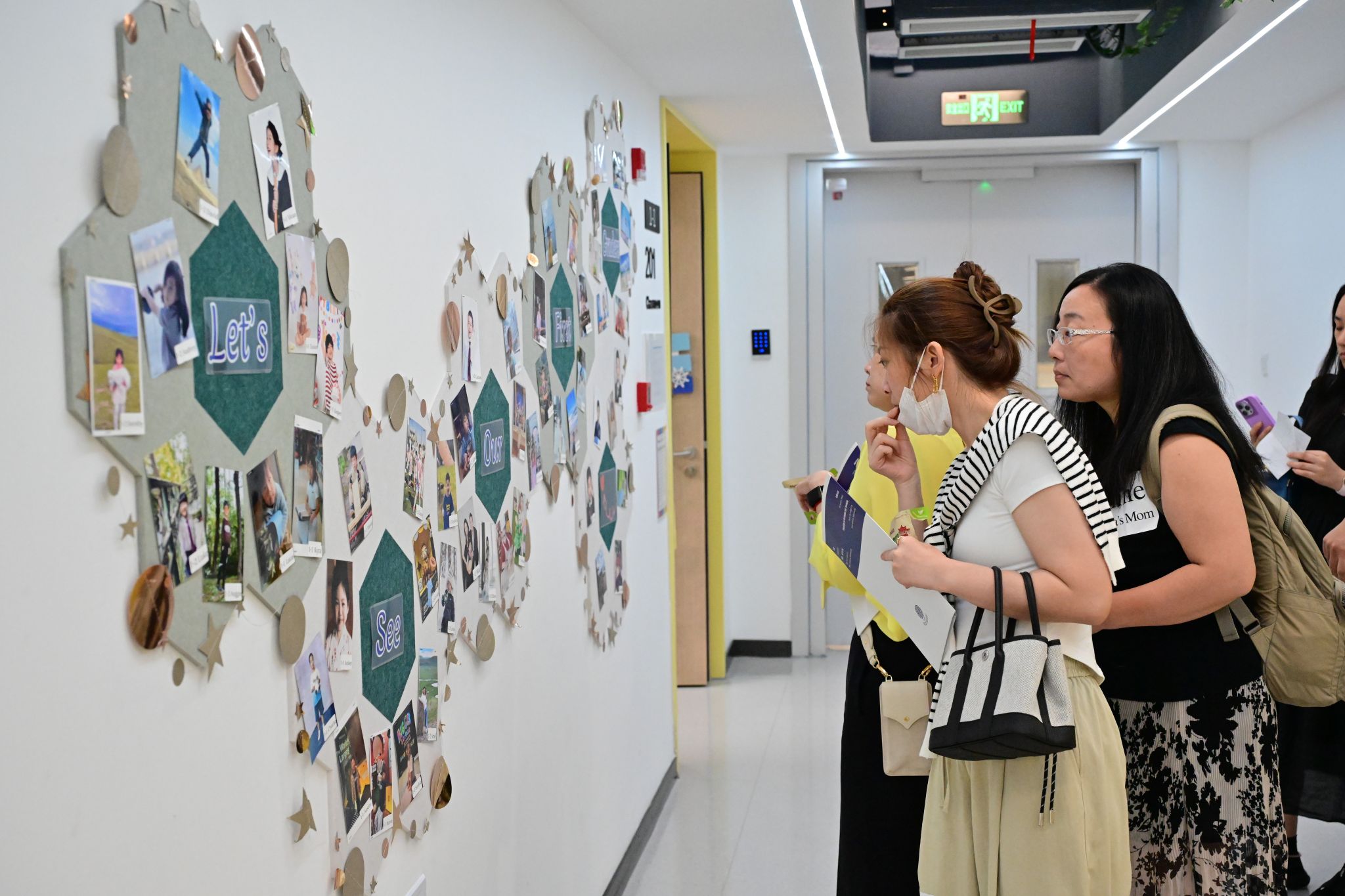
(Written by Qingjia Yang
Pictures by Elaine Zhu
Reviewed by Ms. Zhu Dan, Shiyu Wu, Grace Grilmore)